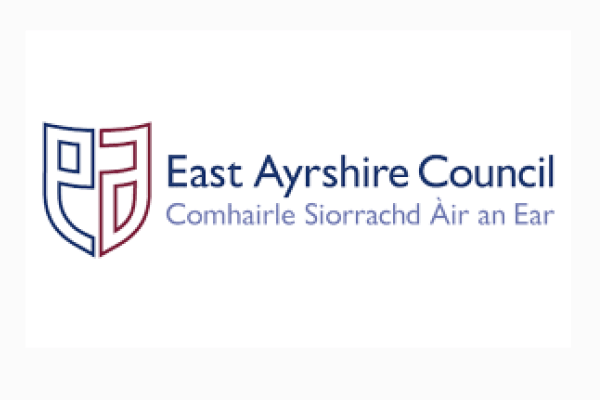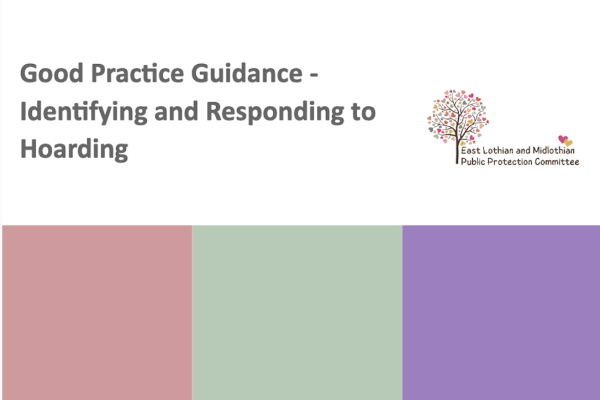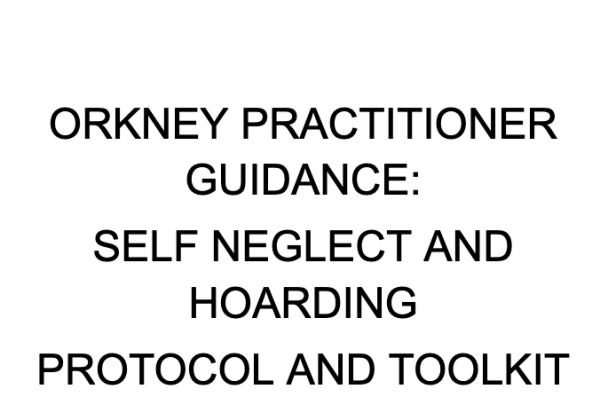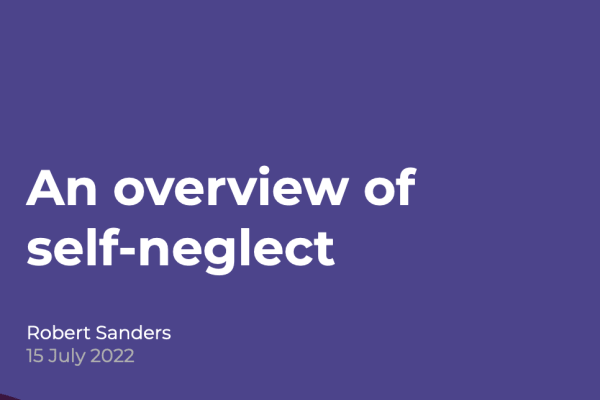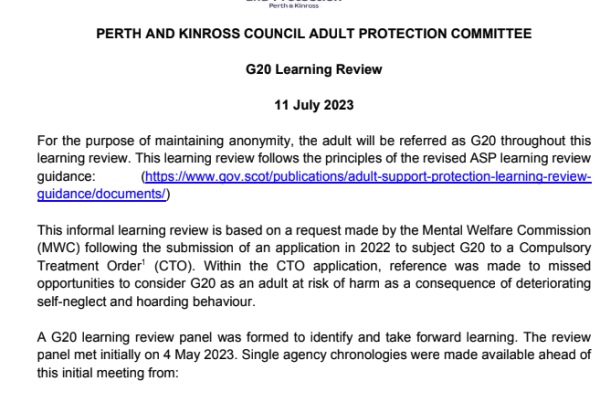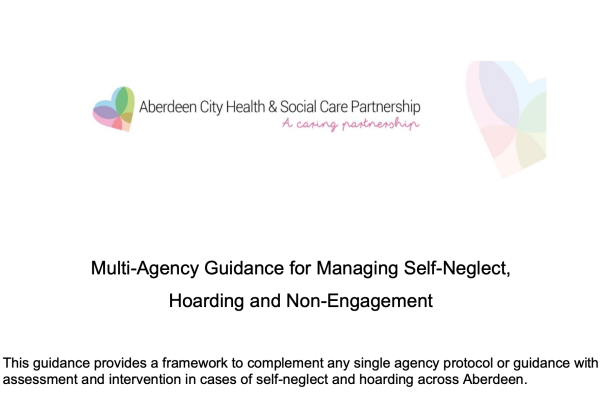Learning Review: Adult O (East Ayrshire)
This review relates to the care and protection arrangements for Adult O, age 81. Adult O lived alone and died from injuries caused by a house fire in the early hours of the morning on 22 February 2022, following a visit to the Emergency Department the day before.
Themes and learning points in this review include:
* joint working and clarity of roles/responsibilities
* self-neglect
* the right to protection versus the right to self-determination
* the role of housing.
